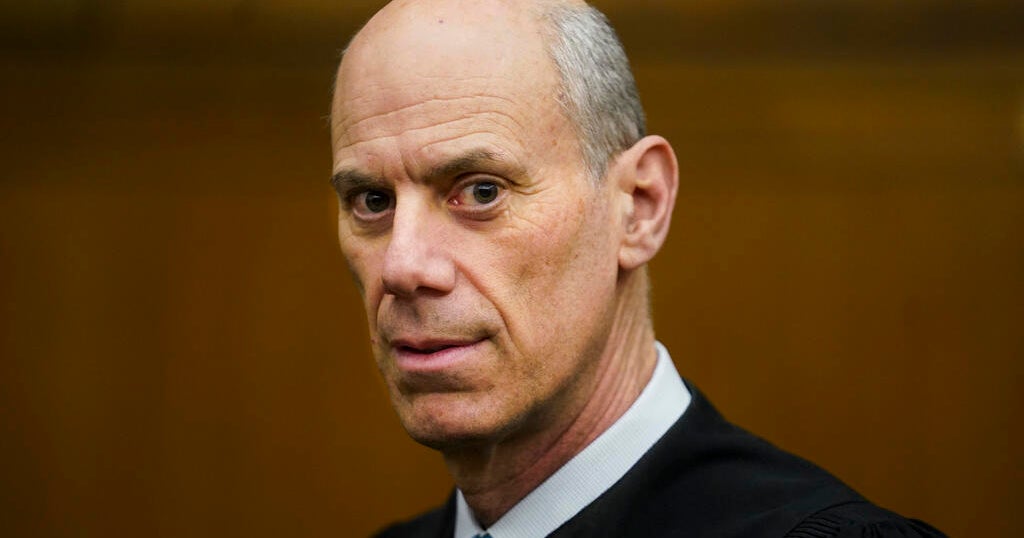
A federal judge is continuing his investigation into whether the Trump administration defied court orders in a high-profile immigration case involving the Alien Enemies Act, he said Wednesday.
In an 8-3 ruling last week, a federal appeals court left in place an earlier decision that blocked U.S. District Judge James Boasberg’s April order, which said that probable cause exists to find the Trump administration in criminal contempt over its “willful disregard” of his order in March to turn around two planes carrying alleged Venezuelan gang members bound for a prison in El Salvador.
But the panel also found that even though his initial ruling had been struck down, Boasberg, who is the chief judge for the U.S. District Court in Washington, D.C., could continue his probe into whether the Trump administration had violated his court order.
“The district court’s order here was a measured and essential response to what it reasonably perceived as shocking executive branch conduct,” Judges Nina Pillard, Robert Wilkins and Bradley Garcia wrote in a joint opinion.
“I will be going forward with it,” Boasberg said. “I certainly intend to find out what happened that day.”
In April, Boasberg wrote that the Justice Department’s actions were “sufficient for the court to conclude that probable cause exists to find the government in criminal contempt. The court does not reach such [a] conclusion lightly or hastily; indeed, it has given defendants ample opportunity to rectify or explain their actions. None of their responses has been satisfactory.”
“The Constitution does not tolerate willful disobedience of judicial orders — especially by officials of a coordinate branch who have sworn an oath to uphold it,” Boasberg wrote.
Boasberg will also continue to hear arguments on the merits of the case, which arose after the president issued a proclamation in March invoking the Alien Enemies Act, a seldom-invoked law from 1798, to summarily deport Venezuelans whom his administration claims are members of the gang Tren de Aragua.
After Trump invoked the Alien Enemies Act, a group of Venezuelan migrants immediately sued to prevent their removal under the more than 200-year-old wartime law. Boasberg swiftly blocked the Trump administration from removing the plaintiffs from the U.S. for 14 days and, in an emergency hearing, ordered government lawyers to return to the U.S. people subject to the proclamation who were on planes headed toward El Salvador.
The judge then blocked the Trump administration from conducting deportations of noncitizens in its custody under the Alien Enemies Act. Boasberg’s order did not block the government from deporting the alleged gang members or others under other immigration authorities, however.
But Boasberg said that after his orders, the government did not stop the removal process under the Alien Enemies Act, and planes carrying migrants subject to deportation under the invocation of the act later landed in El Salvador, where most were transferred to its Center for Terrorism Confinement, or CECOT.
Remarks by Trump administration officials raised questions for Boasberg regarding whether it had violated his order. In his opinion, Boasberg wrote that “boasts” by Secretary of State Marco Rubio and Salvadoran President Nayib Bukele “intimated that they had defied the court’s order deliberately and gleefully.”
Who, exactly, in the Trump administration ordered the two planes to continue on to El Salvador, is unclear.
On Wednesday, Boasberg said that he plans to find that out through further proceedings and live witness testimony under oath, if needed.
Potential witnesses, Boasberg said, include Erez Reuveni, who admitted in court that the Justice Department should not have deported Kilmar Abrego Garcia in March and was put on leave and then fired by the Justice Department.
In an interview with CBS News’ “60 Minutes”, Reuveni said he was called to a meeting with Emil Bove, who was then the No. 3 in charge at the Justice Department and is now a federal judge, and Bove told him to potentially ignore court orders if a judge tried to slow the Alien Enemies Act deportations that were underway.
“Bove emphasized, those planes need to take off, no matter what,” Reuveni said. “Then after a pause, he also told all in attendance, and if some court should issue an order preventing that, we may have to consider telling that court, ‘f*** you.'”
Another likely witness, Boasberg said, is Drew Ensign, a deputy assistant attorney general who was the attorney of record in the first hearings in the case.
In court, Boasberg asked Ensign if he understood the verbal orders to turn the plane around and if Ensign understood if the order was immediate. Ensign said he did, but the planes never turned around.
He said he’s likely to hold his first hearing on the contempt investigation the week after Thanksgiving.
“Justice requires me to move promptly on this,” Boasberg said.
